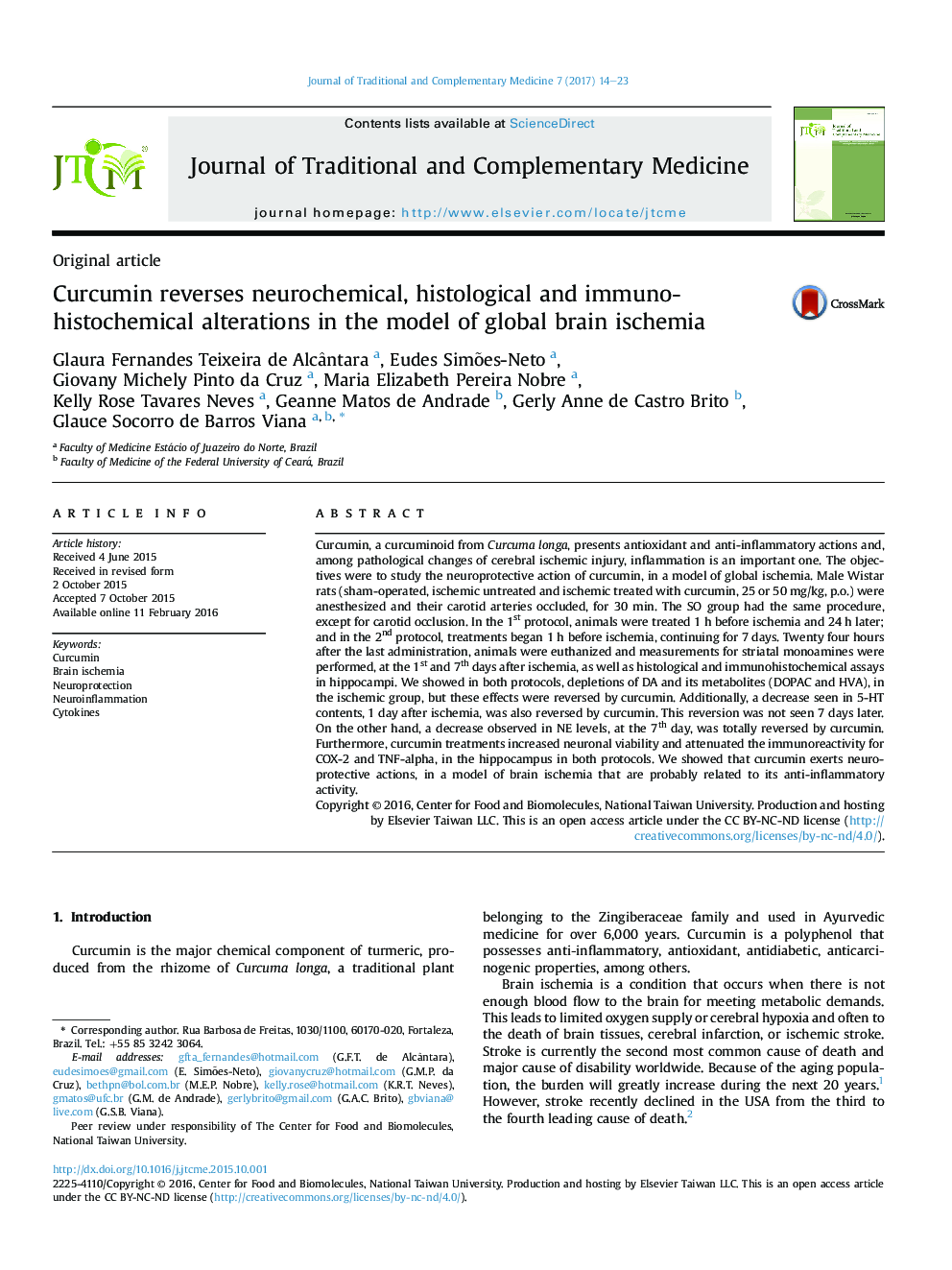| کد مقاله | کد نشریه | سال انتشار | مقاله انگلیسی | نسخه تمام متن |
|---|---|---|---|---|
| 5635427 | 1406633 | 2017 | 10 صفحه PDF | دانلود رایگان |
Curcumin, a curcuminoid from Curcuma longa, presents antioxidant and anti-inflammatory actions and, among pathological changes of cerebral ischemic injury, inflammation is an important one. The objectives were to study the neuroprotective action of curcumin, in a model of global ischemia. Male Wistar rats (sham-operated, ischemic untreated and ischemic treated with curcumin, 25 or 50Â mg/kg, p.o.) were anesthesized and their carotid arteries occluded, for 30Â min. The SO group had the same procedure, except for carotid occlusion. In the 1st protocol, animals were treated 1Â h before ischemia and 24Â h later; and in the 2nd protocol, treatments began 1Â h before ischemia, continuing for 7 days. Twenty four hours after the last administration, animals were euthanized and measurements for striatal monoamines were performed, at the 1st and 7th days after ischemia, as well as histological and immunohistochemical assays in hippocampi. We showed in both protocols, depletions of DA and its metabolites (DOPAC and HVA), in the ischemic group, but these effects were reversed by curcumin. Additionally, a decrease seen in 5-HT contents, 1 day after ischemia, was also reversed by curcumin. This reversion was not seen 7 days later. On the other hand, a decrease observed in NE levels, at the 7th day, was totally reversed by curcumin. Furthermore, curcumin treatments increased neuronal viability and attenuated the immunoreactivity for COX-2 and TNF-alpha, in the hippocampus in both protocols. We showed that curcumin exerts neuroprotective actions, in a model of brain ischemia that are probably related to its anti-inflammatory activity.
105
Journal: Journal of Traditional and Complementary Medicine - Volume 7, Issue 1, January 2017, Pages 14-23
